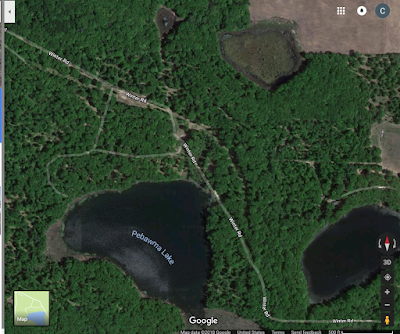The Waterfront - Part 2
The Waterfront – Part 2 I was eight years old and could not row a boat. I had seen many campers rowing many boats in that first week of summer camp. Push the oars forward; dip them down; pull back through the water; repeat. It was simple, so simple that just a few minutes earlier I had sat in the rowing seat while a counselor named John untied the boat and pushed me away from the dock. The easy rhythm had pulled me away a bit awkwardly at first as I got used to the balance. Soon I was in the middle of Lake Pebwama. I spent the waterfront time doing a slow tour around the lake. But the waterfront director had blown the whistle, signaling the boats to return. I rowed toward the dock. When I was about 25 yards out, John yelled, “Okay, turn it around so I can tie it up.” Turn it around? I was flummoxed. I knew how to go forward. I had the concept but little experience in going in reverse. How do you turn the rowboat around? I could feel...
